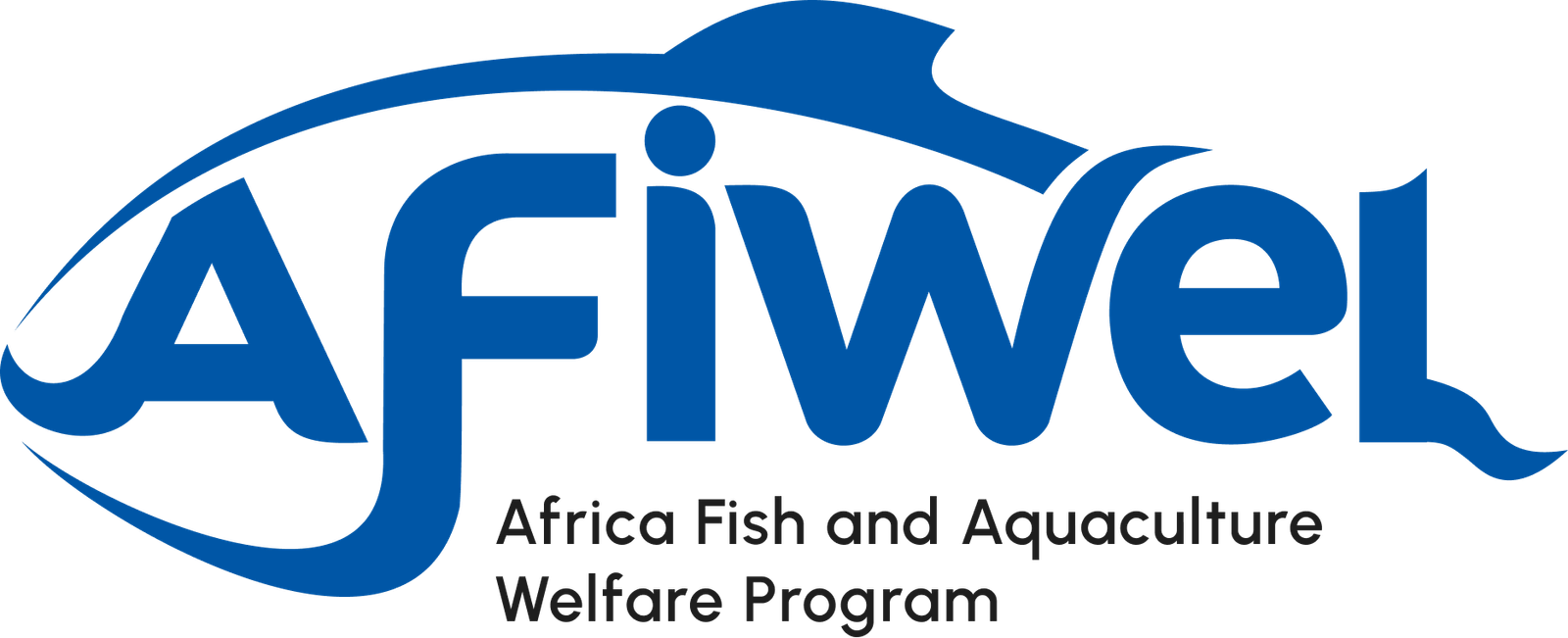Resources
Search for any resource here
Or filter by
Type of Paper
Subject Category
Year of Publication
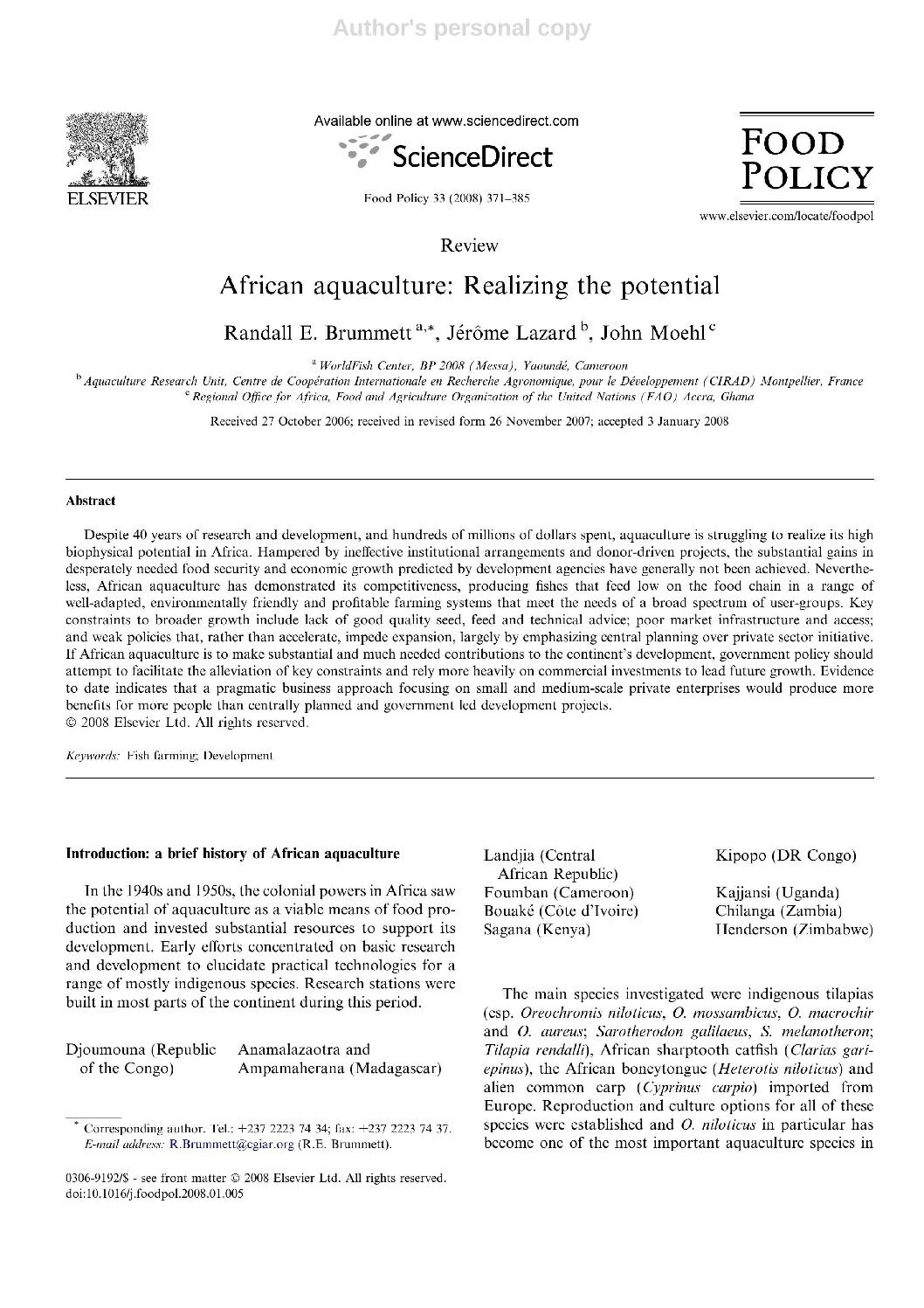
Category: Policy
Year of Publication: 2008
African aquaculture: Realizing the potential
Despite 40 years of research and development, and hundreds of millions of dollars spent, aquaculture is struggling to realize its high biophysical potential in Africa. Hampered by ineffective institutional arrangements and donor-driven projects, the substantial gains in desperately needed food security and economic growth predicted by development agencies have generally not been achieved
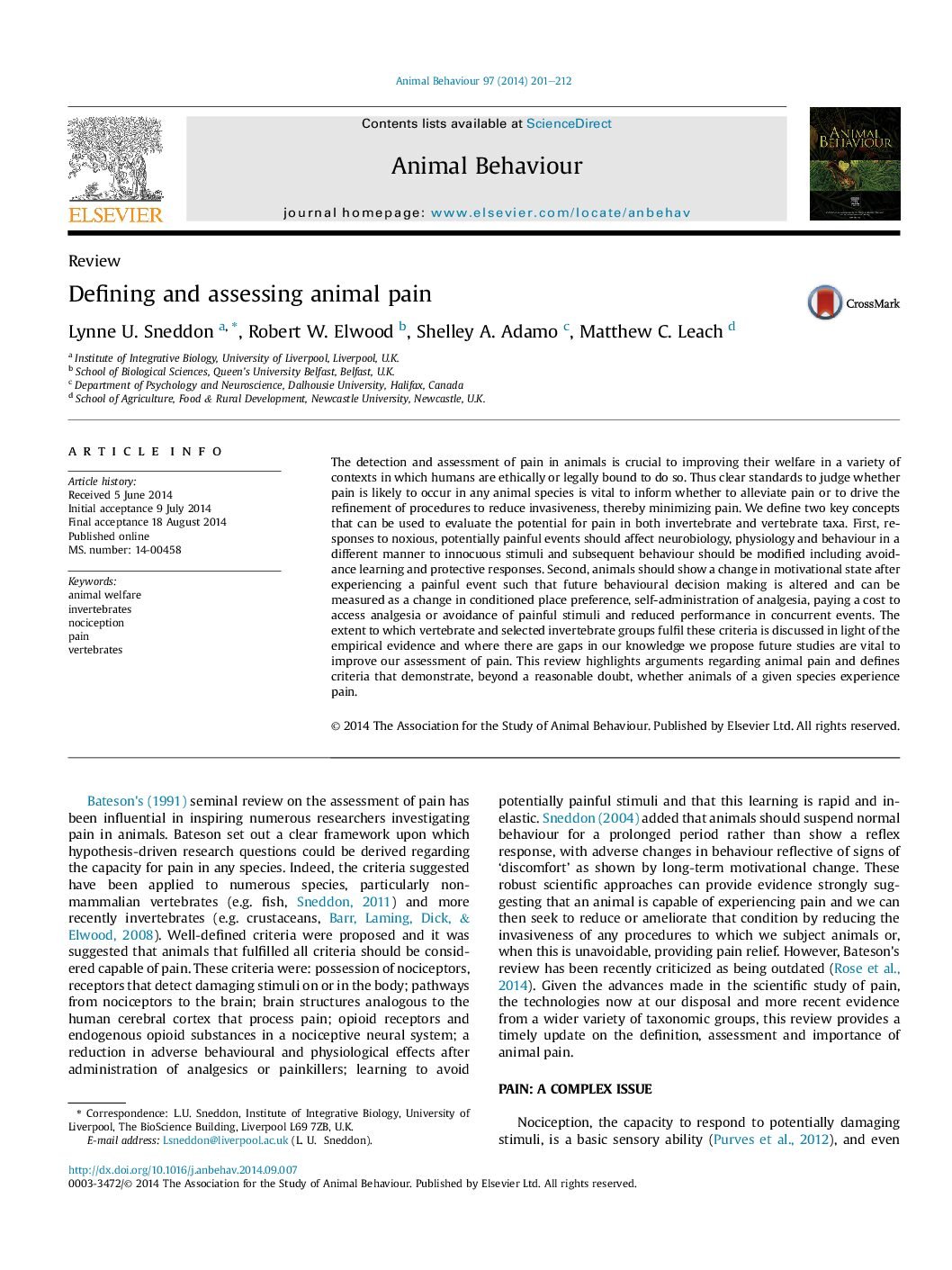
Category: Fish Welfare
Year of Publication: 2014
Defining and assessing animal pain
The detection and assessment of pain in animals is crucial to improving their welfare in a variety of contexts in which humans are ethically or legally bound to do so. Thus clear standards to judge whether pain is likely to occur in any animal species is vital to inform whether to alleviate pain or to drive the refinement of procedures to reduce invasiveness, thereby minimizing pain
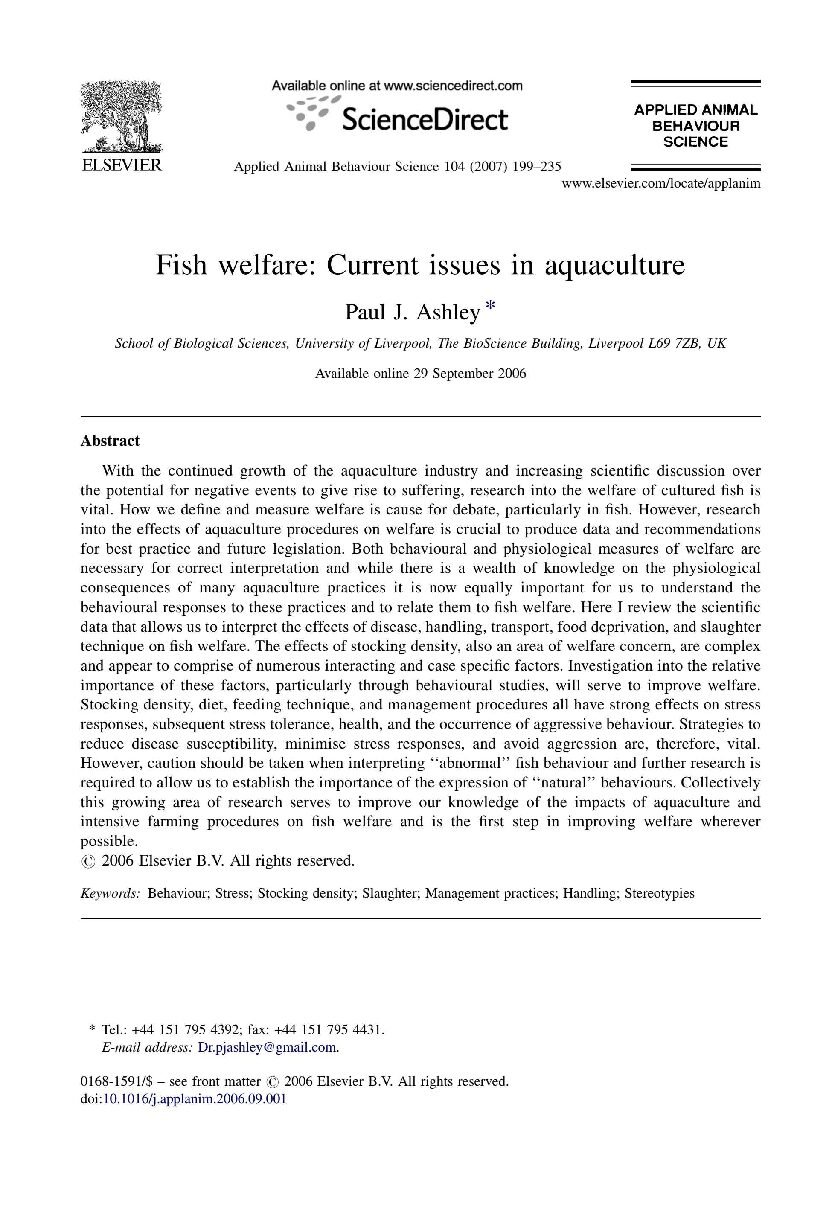
Category: Fish Welfare
Year of Publication: 2007
Fish welfare: Current issues in aquaculture
With the continued growth of the aquaculture industry and increasing scientific discussion over the potential for negative events to give rise to suffering, research into the welfare of cultured fish is vital. How we define and measure welfare is cause for debate, particularly in fish
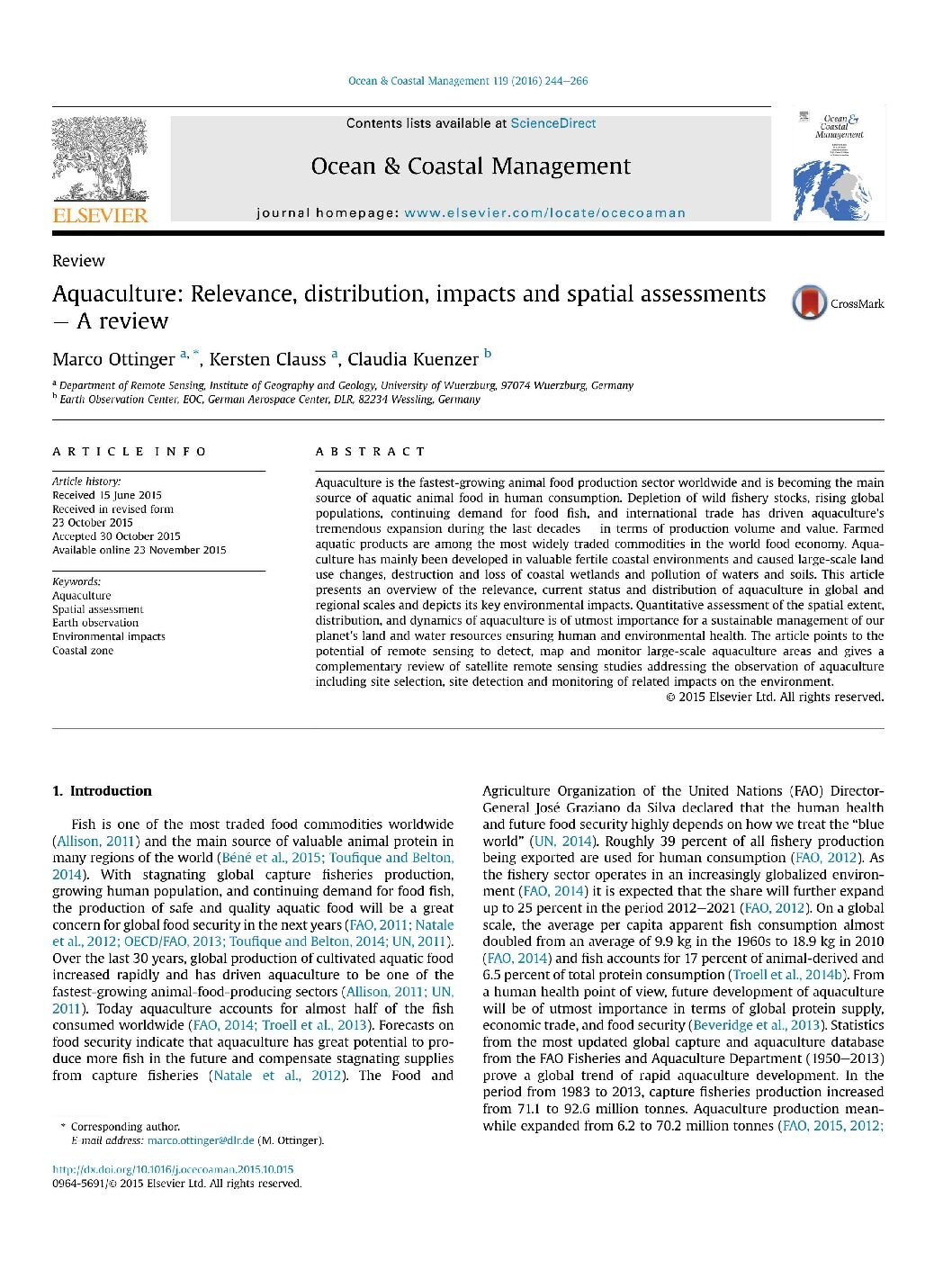
Year of Publication: 2015
Aquaculture: Relevance, distribution, impacts and spatial assessments – A review
Aquaculture is the fastest-growing animal food production sector worldwide and is becoming the main source of aquatic animal food in human consumption. Depletion of wild fishery stocks, rising global populations, continuing demand for food fish, and international trade has driven aquaculture’s tremendous expansion during the last decades e in terms of production volume and value.
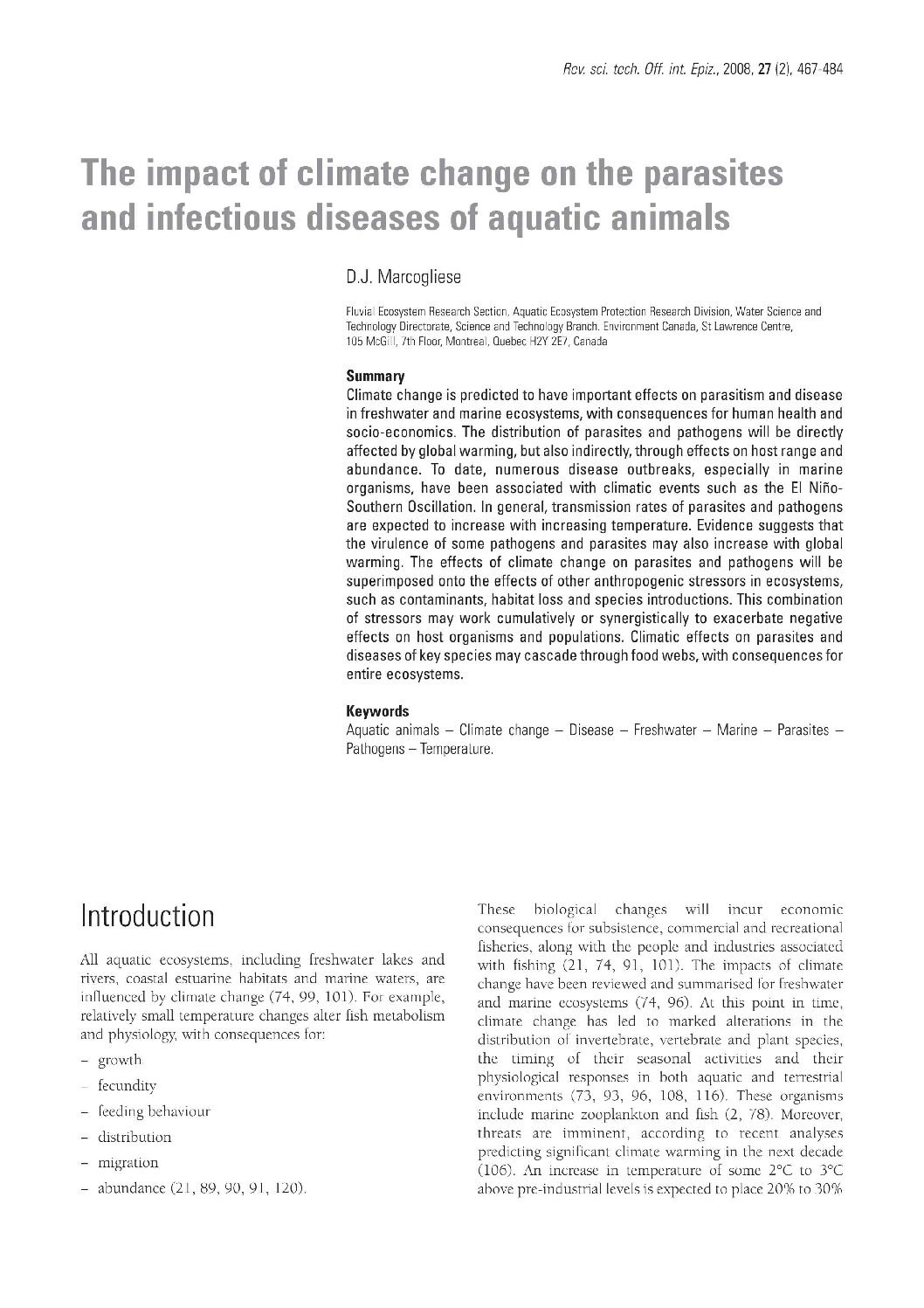
Year of Publication: 2008
The impact of climate change on the parasites and infectious diseases of aquatic animals
Climate change is predicted to have important effects on parasitism and disease in freshwater and marine ecosystems, with consequences for human health and socio-economics. The distribution of parasites and pathogens will be directly affected by global warming, but also indirectly, through effects on host range and abundance
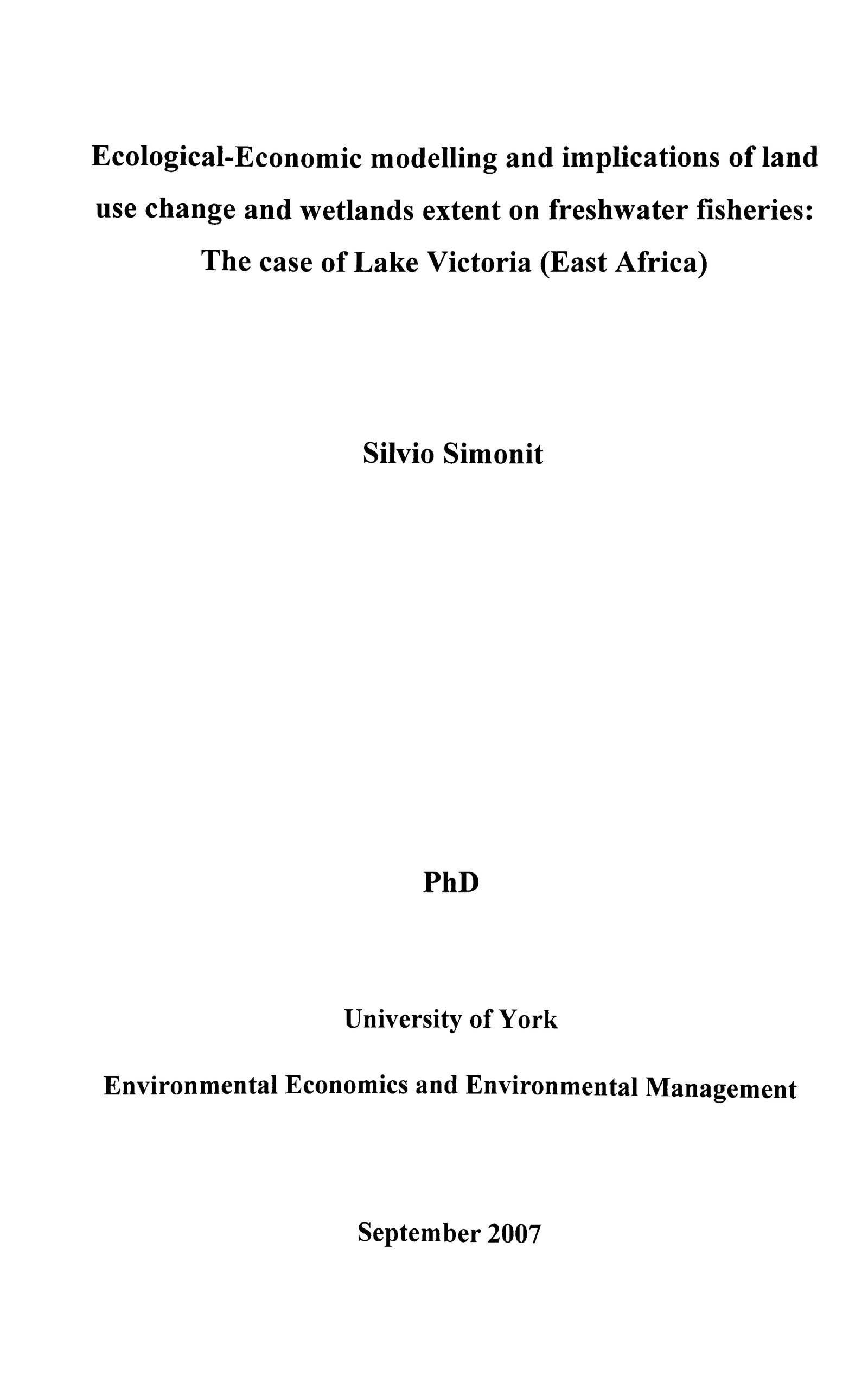
Year of Publication: 2007
Ecological-Economic modelling and implications of land use change and wetlands extent on freshwater fisheries
Watershed degradation and the conversion of wetlands to alternative uses affect water quality, having profound implications for the freshwater ecosystem and fisheries of Lake Victoria. Through dynamic simulations using the Ecopath approach we show that eutrophication may explain the sudden upsurge of the introduced Nile perch during the 1980s.

